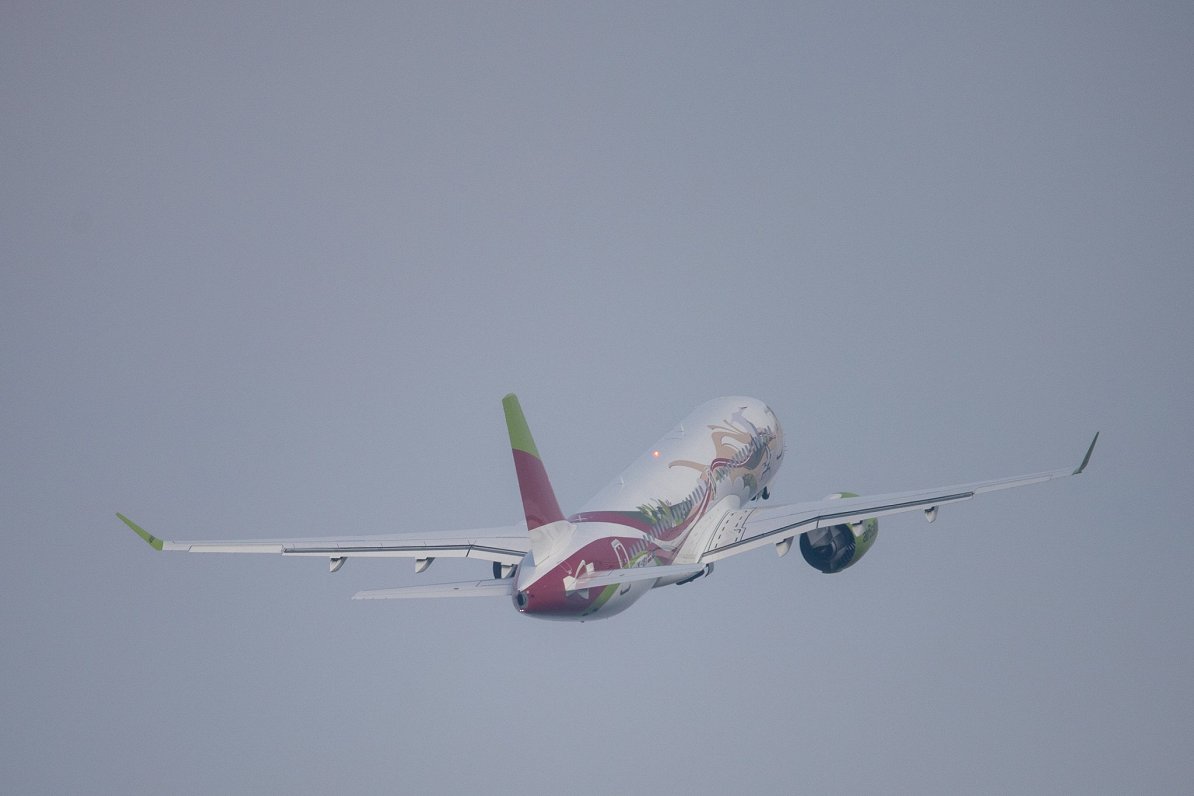At the same time, Latvia has started talks with Lithuania and Estonia about them possibly purchasing shares in the company, according to Transport Minister Atis Švinka on the Latvian Radio program “Krustpunktā” April 10.
Švinka pointed out that airBaltic is still preparing for an initial public offering (IPO), but this requires a favorable situation in the capital markets. And currently, according to Švinka, there is none.
“This week, last week, I think we’ve seen this enormous turbulence in the financial markets like never before. The introduction and lifting of tariffs by US President Donald Trump – the financial markets are looking at it very nervously. If you look at the assessment of the financial markets and the stress situation, it’s very similar to what it was in the 2008 and 2009 crisis or the Covid crisis. The market nervousness is very close to the Covid-time market figures,” said Švinka, emphasizing that “under such external conditions it would be absolutely impossible to enter the IPO markets.”
However, even taking President Trump’s volatility into account, this is far from the first time an airBaltic IPO has been talked up as beginning its final approaching before being sent into its seemingly perpetual holding pattern.
The dismissal of longtime airBaltic CEO and Chairman Martin Gauss is another factor that is unlikely to encourage investors to think everything is hunky-dory at the company.
Gauss, who was summarily dismissed earlier this week, previously said that favorable market conditions for the company’s listing could be in the spring. Asked whether Air Baltic could go public this spring , Švinka replied: “At this point, analyzing the situation, to say that we are going to the financial markets right away would be wrong.”
At the same time, Švinka emphasized that the company must continue to prepare so that it can start offering shares in an IPO at an opportune moment. Švinka suggested that such a moment could also be in the fall – though it might be recalled that around this time last year officials were floating similar notions.
“The crisis is forcing the company to mobilize. To review other options, possibly find new markets, new business niches. To prepare so that when the market is ready, we can come out much stronger and more powerful. (..) The company is working very hard to find this window of opportunity this year in which we could go public,” the minister said.
The Minister of Transport also revealed that he has begun negotiations with his Lithuanian and Estonian colleagues regarding a possible acquisition of shares in Air Baltic – another measure which has been discussed in the past but which has never come to anything.
“I have opened a dialogue with Lithuania and Estonia, I have addressed the ministers. We are looking at opportunities for the Lithuanian side or the Estonian side to see how Air Baltic could participate. We understand that this is airBaltic, this is not airLatvia,” Švinka said – though the Latvian state owns 97.97% of the company.
Asked to explain Latvia’s possible offer to its neighbours in more detail, Švinka admitted that there are various possibilities: “We need to consider this dialogue, what it could be. Either the public sector, the government, airports, state-owned companies, or pension funds – both private and institutional. This work is still ahead, and most importantly, what is the situation in the financial market at a particular moment.”
Latvian airline Air Baltic recorded a loss of 118.2 million euros last year, according to the company’s 2024 annual report on its financial and operating results.
